The Impact of Artificial Intelligence on the Job Market: A Guide to AI Jobs and Career Paths
Artificial intelligence (AI) is revolutionizing the way businesses operate, making it essential in various industries. This has led to a significant rise in artificial intelligence jobs, with new roles like prompt engineers gaining popularity. As a result, job seekers must adapt their skills to remain competitive in this emerging field.
Contrary to popular belief, you can adapt to AI job trends without a computer science degree. For instance, you can become a prompt engineer even without software engineering or programming skills. Online courses are available to help you develop critical AI skills, while roles like research scientist are now more accessible with a relevant bachelor’s degree.
If you’re looking to expand your career horizons in artificial intelligence, this guide is for you. We’ll provide a comprehensive overview of the various AI careers available, and you’ll learn the skills needed to secure a position in AI. Our goal is to help you unlock new opportunities in your industry or explore new career paths.
The Growing Demand for AI Jobs
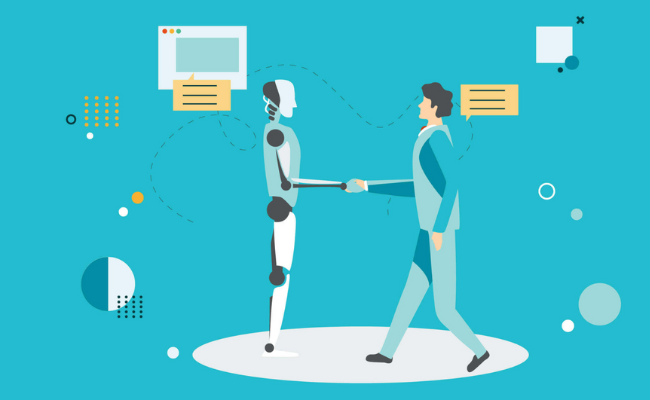
Photo Credit: resources.workable.com
How high is the demand for AI professionals nowadays? Believe it or not, the latest report from the Fiverr freelancer platform suggests the current demand skyrocketed to 1,000%!
Its seventh Business Trends Index indicates that Accounting and Finance services grew the most. They increased by 835% over the past six months. Other industries, like Website Development and Business Naming services, rose by 51% and 92%, respectively.
Overall, the BTI shows businesses and freelancers adapted to changes from the pandemic. They turned to technologies like artificial intelligence to navigate the shifting conditions.
Another reason for the AI field’s popularity is ChatGPT. It took the world by storm with its ability to generate various texts, such as jokes and scientific journals.
You may also like: Google Breaks up Artificial Intelligence Ethics Board
Believe it or not, ChatGPT experience is now more valuable than a college degree nowadays! That is from the latest survey from the education consultation firm Intelligent.
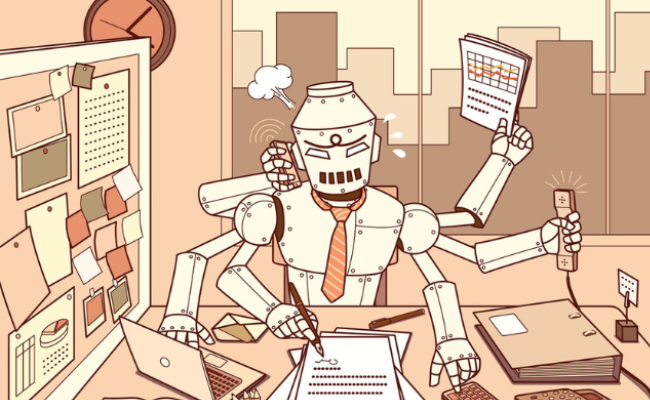
Photo Credit: marketingtechnews.net
It asked 1,000 hiring managers and found 98% of businesses hiring entry-level employees require ChatGPT experience. More importantly, 86% of the respondents said they preferred applicants who knew how to use the bot.
The Bureau of Labor Statistics (BLS) also shared insights regarding the demand for artificial intelligence jobs. Contrary to popular belief, the rise of AI offers more jobs instead of removing them.
The BLS says this technology raises productivity, requiring more people to maintain. In turn, companies hire more people as AI becomes more popular.
Top Careers in Artificial Intelligence and Job Roles

Photo Credit: wework.com
- Prompt engineer: These people write the commands that guarantee the desired results for users. Even better, you do not need specialized skills like data science to apply. Business Insider says it pays roughly $335,000 annually nowadays.
- Data scientist: Artificial intelligence systems rely on algorithms, and these people build them using data. As the name suggests, it requires a data science degree or relevant experience. Indeed says their average yearly salary is $128,515.
- AI engineers: These people are responsible for developing and training AI algorithms to work like a human brain. Glassdoor reports the mean yearly salary is $128,247.
- AI ethicist: People want to ensure AI respects their beliefs as they depend on it further. AI ethicists examine its tools so they follow ethical standards. ZipRecruiter says the role pays roughly $121,841 annually.
- AI writers: These people research AI and publish articles explaining the latest developments. Also, they use these technologies to improve their content. These professionals earn $101,920 yearly.
Key Skills Required for AI Careers
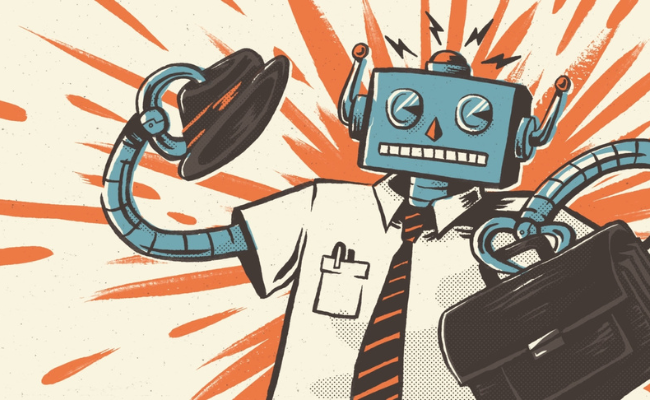
Photo Credit: wework.com
Programming: AI systems are computer programs made with programming languages. Some of the most in-demand include Python and Java. Fortunately, you can learn them from free and paid online courses.
Machine learning: It refers to the part of AI development that enables AI to “learn by themselves.” Machine learning involves people training these systems to detect patterns in massive databases to perform tasks.
Cluster analysis: This task refers to grouping objects. Cluster analysis enables artificial intelligence systems to detect patterns properly. As a result, they become more useful for image analysis, data retrieval, and other purposes.
Mathematics: AI professionals work with algorithms involving complex mathematical knowledge. Some AI jobs require linear algebra, probability, and statistics knowledge.
Problem-solving: AI tools help us solve problems, so you need to know how to make a machine do that. Problem-solving involves other skills like critical thinking and analysis.
Industries Hiring AI Jobs
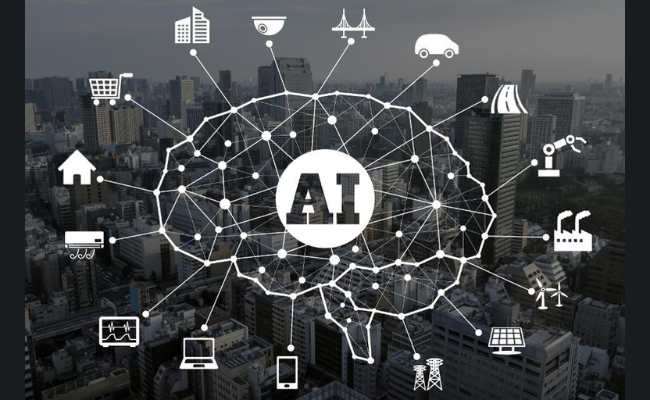
Photo Credit: beyondexclamation.com
Finance: As mentioned, the finance sector has the highest AI demand in the job market. Artificial intelligence jobs in finance need people who can create programs that mimic human intelligence to guide investment and banking decisions. For example, a University of Florida AI research suggests ChatGPT can predict stock price trends.
Education: Microsoft co-founder Bill Gates believes artificial intelligence will significantly change education. That’s why more companies and institutions adopt AI into their curriculums. As a result, more schools and online learning platforms want AI professionals.
Marketing: Nowadays, more businesses use AI chatbot marketing. Consequently, they require more employees who can build and maintain these programs. It is also a boon for customer service representatives because these chat apps need human agents for complaint escalation.
Advertising: Artificial intelligence reduces the time needed to create and launch advertising campaigns. For example, modern companies publish online ads that target specific audiences using AI. That is why businesses need more people to create and optimize these ads.
Healthcare: AI promotes the creation of new medical solutions. For example, a Cornell University student developed AI glasses that help people with speech problems. Hospitals also need AI jobs to maintain these systems.
The Future of AI jobs
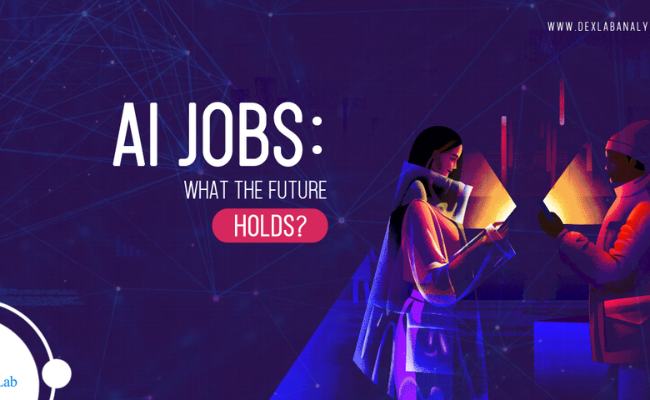
Photo Credit: dexlabanalytics.com
There will be two types of artificial intelligence jobs that will become more prevalent in the future. First, more companies will hire AI researchers, data scientists, and other specialized roles.
They will help the largest firms create and maintain proprietary AI systems. After all, more companies help smaller ones adopt these technologies.
For example, the Chinese eCommerce company Alibaba announced it would build AI networks for other businesses. It promises to significantly lower development and maintenance costs with its cloud network. Amazon will do the same with the launch of Bedrock.
Second, small businesses would hire less specialized artificial intelligence jobs, like prompt engineering and writing. The free version of ChatGPT and other generative AI already empowers businesses. Also, the paid versions are more accessible to ordinary people.
These technologies are surprisingly easy to use, and you do not need advanced skills to use them properly. For example, prompt engineers mostly rely on English proficiency. More schools will offer AI education so that their countries can prepare for the age of AI. That means you will have more ways to adapt to the shifting job market.
As a result, we will have more opportunities for career growth, thanks to AI. You will perform jobs that were not available years ago. Even better, you can easily adapt to this future of work!
You may also like: Artificial Intelligence Creates Shake Shack’s Vegan Shakes and Ice Cream
Conclusion
Artificial intelligence jobs are becoming more prevalent nowadays. They will replace some roles but open new career opportunities, regardless of your skills.
You must adapt and acquire essential skills in the digital age to succeed in the evolving job market. Fortunately, numerous free and paid online sources can help you.
These include the latest articles from Inquirer USA. Follow the page to stay updated with the latest tips and trends on AI, gadgets, and more.
FAQs
What are artificial intelligence jobs?
AI jobs refer to several roles that involve developing and maintaining AI systems. These include advanced careers like AI engineers, data scientists, researchers, and machine learning specialists. Also, other machine learning jobs like writer, virtual assistant, and a prompt engineer are more widely accessible.
What are the challenges of AI careers?
Some challenges associated with working in AI include staying updated with rapidly evolving technology. Also, you must navigate ethical considerations related to AI and address potential biases in AI systems. Additionally, competition for AI jobs can be fierce, and working in the field may require long hours and intense focus.
What is the future of artificial intelligence jobs?
The job outlook for AI jobs is strong, with many industries and organizations investing in AI technology. The demand for AI professionals is expected to grow in the coming years, making it a promising career path. Fortunately, free online sources like Inquirer USA can help you follow the latest trends.

